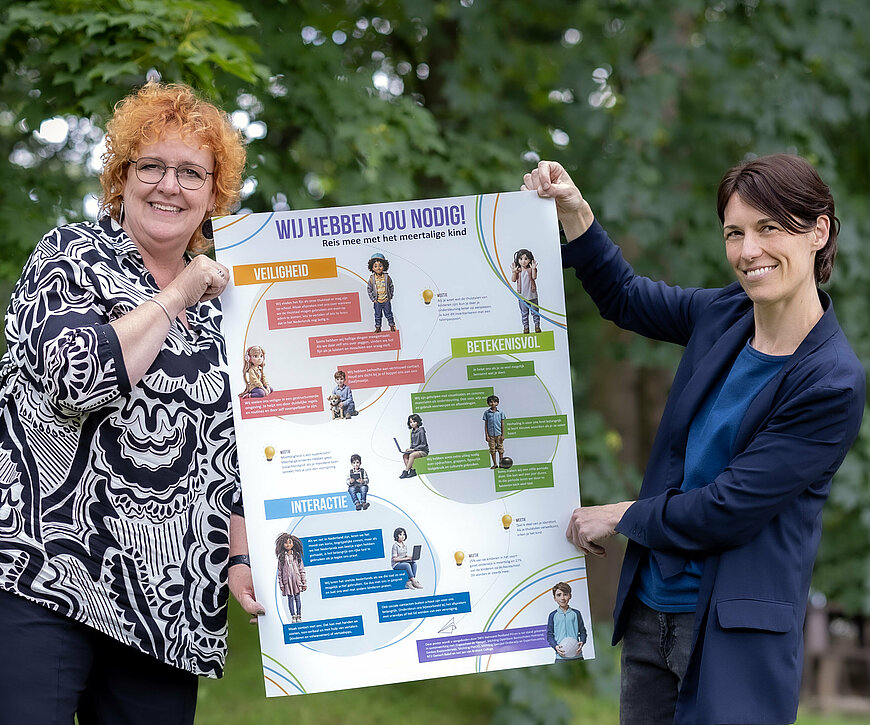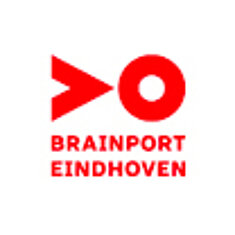Innovation team develops poster: 'View multilingualism as a superpower'

Innovation team develops poster: 'View multilingualism as a superpower'
How do you deal with internationalization in your classroom? And what do multilingual children really need? To help educational professionals, NT2 specialists Esther van der Burgt and Simone van Roosendaal developed a poster together with colleagues. It offers tools and tips for educating children with a different home language. “Give these students time and see multilingualism as an opportunity.”
“We need you,” the poster headlines, referring to professionals in primary, secondary and childcare. Below this, multilingual children 'tell' what they need. Such as: 'We like it if our home language is allowed at school' or 'We have been helped with visualizations and concrete materials as support'. The poster brings together tips and facts about multilingualism based on three main themes: safety, meaningfulness and interaction. “Because that means that the student learns the Dutch language and feels comfortable,” explains Esther van der Burgt, NT2 specialist in primary education in Gemert-Bakel. 'With the poster we want to make educational professionals aware of the needs of multilingual children and at the same time show that multilingualism is not an obstacle. It is actually a superpower. If you master several languages, you also start to think and make connections in multiple languages.'
As a school, do not remain an island
The poster is an initiative of a regional innovation team that is committed to sharing knowledge around NT2 (Dutch as a second language). “That team emerged from the Helmond-Peelland PO partnership,” says Simone van Roosendaal, NT2 specialist at Eenbes Primary Education. 'Now that internationalization is increasing in the region, it is important that as a school we do not remain an island. By working together, more students benefit.' Although internationalization has advantages, it can also be challenging or exciting for teachers, Simone notes. 'While you used to see many migrant workers in Helmond and the surrounding villages, they are now also knowledge workers and status holders. Teachers therefore have to deal with more cultures and languages. But it will take some time before you have developed knowledge about multilingualism. That is why we, as an innovation team, wanted to work towards a product that offers education professionals concrete tools. That became the poster, which we distribute at schools and childcare locations in the region.'
Experience circuit
It doesn't stop at just a poster. “We will continue as an innovation team,” says Esther enthusiastically. 'We want to develop an experience circuit in the future. As an educational professional, you experience what it is like to be a newcomer, in an environment where no one speaks your language. Perhaps you know of similar initiatives, where you experience what it is like to be hearing or visually impaired. That does something to your consciousness and your empathy.' That's where it starts, according to Simone. 'Only then can you, as an educational professional, provide the right support, so that these students receive appropriate education in regular schools. That is why the poster also focuses on awareness. But also give yourself and the multilingual child time. Don't put all the pressure on yourself, and let students learn from each other. Do it together and you will go the furthest.'
Curious about the poster with tips about multilingualism? This is also available digitally. Download the poster here.
View the poster!